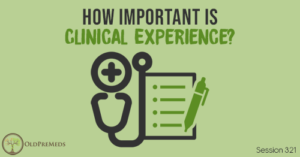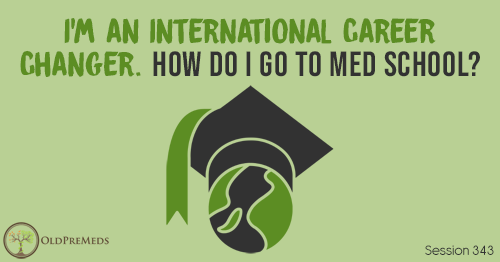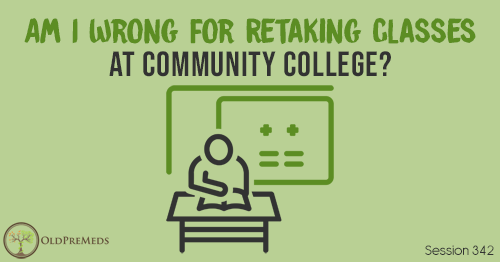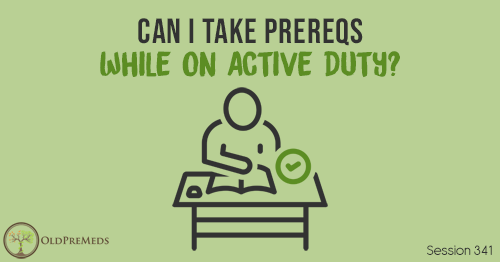Apple Podcasts | Google Podcasts
Session 321
This older premed has work, travel, family, school, and MCAT. Does she really need clinical experience?
Questions answered here on the podcast are taken directly from premedhangout.com. Go ask your questions there and use #OPMquestion.
Also, please be sure to check out all our other podcasts on Meded Media as we try to bring you as many resources as you need on this journey.
Listen to this podcast episode with the player above, or keep reading for the highlights and takeaway points.
[01:04] The MCAT Minute
The MCAT Minute is brought to you by Blueprint MCAT.
The MCAT is one of the most important parts of the medical school application process. To get a good MCAT score, you have to plan and prep as well as plan your prep. To do that very easily, go to Blueprint MCAT. Sign up for a free account and get access to their free study planner tool all for free.
[01:35] OldPreMeds Question of the Week
“How important is the clinical experience for folks who have a nonmedical career? In between full-time work with significant travel family obligations, a postbac, and MCAT setting, there’s little extra time to commit to clinical experience, especially when they mostly require weekdays and I work all day.
Is their weight given to career experience instead of clinical experience, if it’s not really feasible? Or examples of people who get in? I have 60 hours from one organization. I could do that in the mornings but I moved for a new work assignment.”
[02:26] Why Clinical Experience is Important
“Clinical experience is the most important part of your premed journey.”Click To TweetWhen you don’t have clinical experience to prove to yourself that you like being around patients, how are you going to show medical schools that you understand what you’re getting yourself into? Especially if you’re coming from a nonclinical career. How are you going to write a cohesive personal statement?
Your personal statement talks about why you want to be a doctor and that usually involves talking about your experiences being around patients. No matter how great your grades are, it’s not going to work if you haven’t tested that out.
The checkboxes that you think you have to mark off, are mostly for you. Start to think about it in that light to confirm in your mind that this is what you want.
[06:16] Exploring Your Opportunities
You have to have clinical experience if this is truly what you want. Maybe that would mean taking some time off of work or spending more time outside of the house. You could do hospice volunteering or some emergency room volunteering. Look for opportunities that can give you that flexibility. Maybe take one day off of work every couple of weeks.
If you are making this decision to change careers to go to medical school, then you have to sacrifice. That doesn’t mean you have to quit your job. That doesn’t mean you have to move out and, and go sleep on your parent’s couch or something. Rather, be sure that this is what you want, above and beyond some abstract idea that you’ve always wanted to be a physician.
“Get some consistent clinical experience, not just check off a box for the medical schools, but to get experience to prove to yourself that this is what you want.”Click To TweetApplying to medical school is much more than having good grades or being hardworking. You have to show it. Show you want to be a doctor and prove to yourself that you want to be a doctor.












